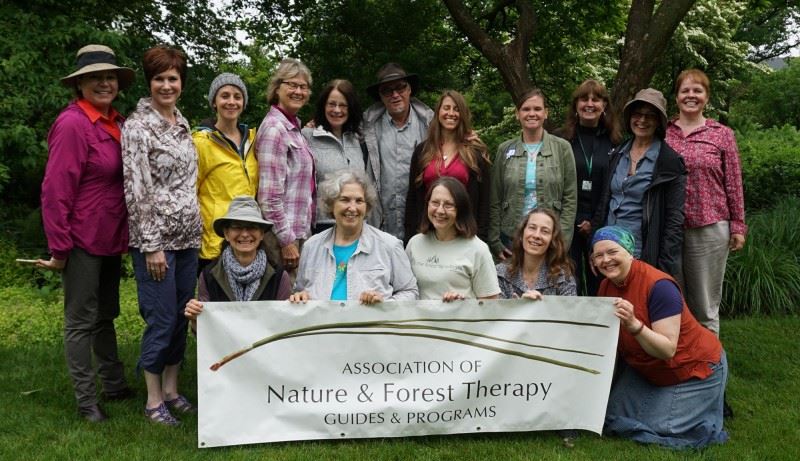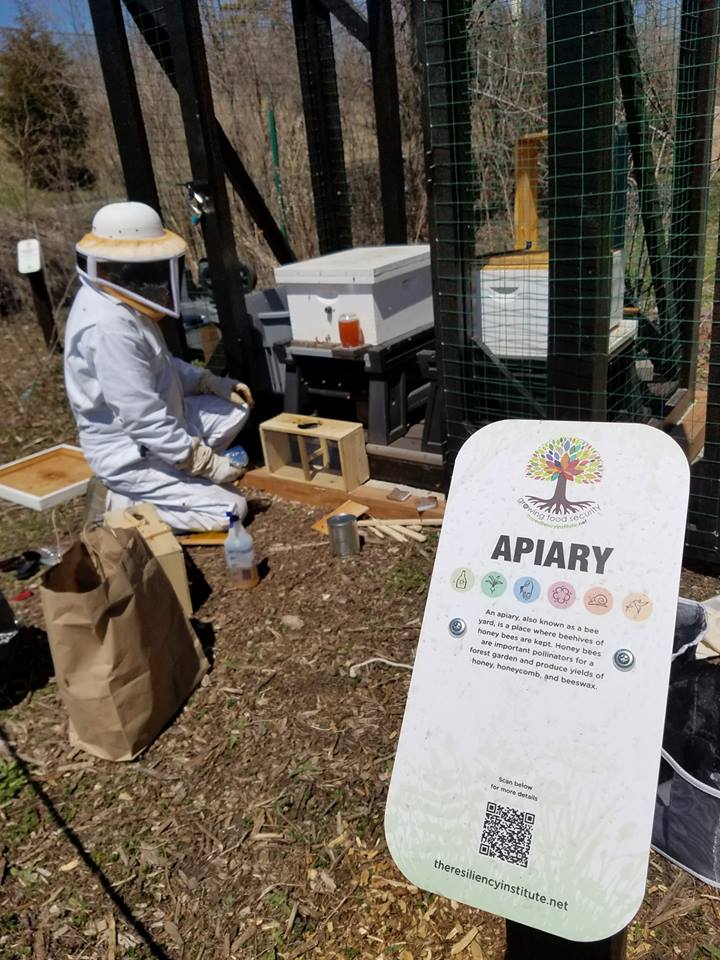PDC Graduate Series – Jodi Trendler and Michelle Hickey
- Milton Dixon
Jodi Trendler is a Graduate of:
|
Michelle Hickey is a Graduate of:
|
Cofounded The Resiliency Institute
in Naperville, IL, immedialtey following their PDC courses.
Their Work?
The suburbs were originally designed to be car centric, resource intensive places for people to live and commute to work. This design has caused a dependence on oil and the automobile, transformed nature into pavement and buildings, and created a culture of stress and competition. The time has come for a suburban permaculture redesign!
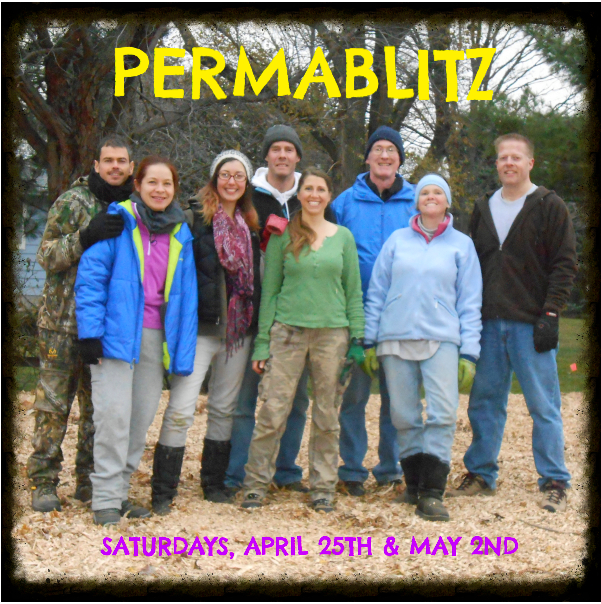
The Resiliency Institute’s vision is of suburbs where people are connected through strong social networks, foraging in edible forest gardens and food forests is a daily community activity, cooperatives of all types exist, social equity & justice are integrated, renewable energy is available to everyone, and so much more.
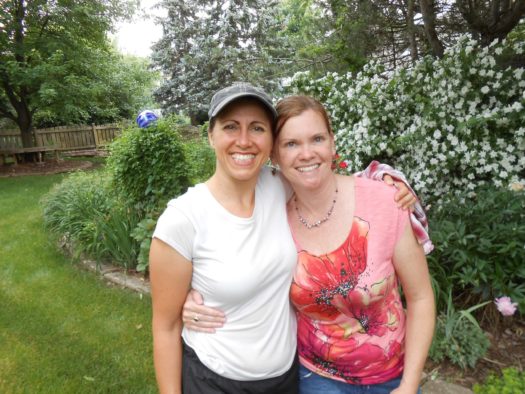
Permaculture provides the ethics, principles, and design strategies to achieve these transformations, creating economically, environmentally, and socially resilient communities.
Michelle, Jodi and their support teams teach people how they can transition their personal, business, church, or school lawns into edible landscapes that grow food security.
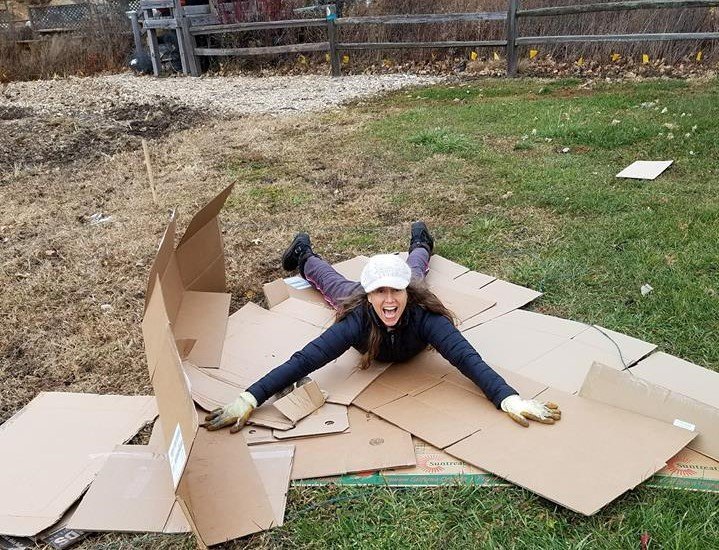
- Edible Wild Plants Certification
- Bioregional Herbalism
- Permaculture Forest Gardener Certification
- Shinrin-yoku (forest therapy)
- Bee Keeping
- Loads of other workshops and nature walks
Find All Workshops/Trainings Here
Listen to the Full Interview Here
Items Discussed (with Milton Dixon of Midwest Permaculture)
- Formed The Resiliency Institute after taking their PDCs. Now, going into their 6th year.
- Noticing how the culture is building around permaculture now. Awareness is building.
- Focused on building resilience in suburban lives. Resilient lifestyle, landscape, and community. Education, outreach, community service.
- Teaching edible wild plants, permaculture forest gardening, herbalism, and Shinrin-yoku (forest therapy).
- Fruit tree guilds and edible forest gardens throughout the community to grow food security. All as part of creating resilient community.
- Food security in Dupage County, pursuing adoption of sustainability goals by local citys.
- Focusing on reaching out to the community in the suburbs. Where most of the consumption is and where change needs to happen.
- They believe that the way to affect change is to create an alternative that people are drawn to.
- Connecting to our senses and our awareness of them. That increases our ability to design to our senses.
- Jodi took her PDC and made Michelle take her own. Their organization has worked to make permaculture understood in the chicagoland area.
- Forest garden project. 1/3 acre, on county property, along the prarie path.
- Volunteer based.
- Projects take a while to mature. Small and Slow process.
- Turned an expensive design for landscaping into a practical and reproducible demonstration of a fruit tree guild. The simple and productive design connected users of a food bank to where food really comes from.
- Sold fruit tree guilds as a package, along with educational programming.
- Installing fruit tree guilds all over Naperville.
- Finding opportunities to work with landscapers to make small portions of designs edible.
- Working on permaculture’s vocabulary problem, aligning the language of permaculture with city planners. Swales & raingardens = stormwater management.
- Pulling together organizations to promote solar energy.
- Creating something that is different from all the examples. Forging a new path is the way forward, and transition to a permaculture life.
- Have held three types of courses. Edible wild plants, over 200 plants identified. Bioregional herbalism, how do we use the plants around us to nourish ourselves, learning from plants directly. Permaculture Food forest course, apply permaculture on the small scale to inform the larger.
- Found that one day a month for 10 months is most doable for people.
- Getting people over the hump of just doing something. Making use of all the mistakes they made to show it’s OK to make a mistake.
- Educate about how to do something and provide people the opportunity to do it right then, doing it as part of the process.
- If people can see what a guild can be, if it can be commonplace in the landscape, then people will understand them and want their own.
- Recognise that we get to choose what we do in the time we have.
- Get people from thinking to doing.

